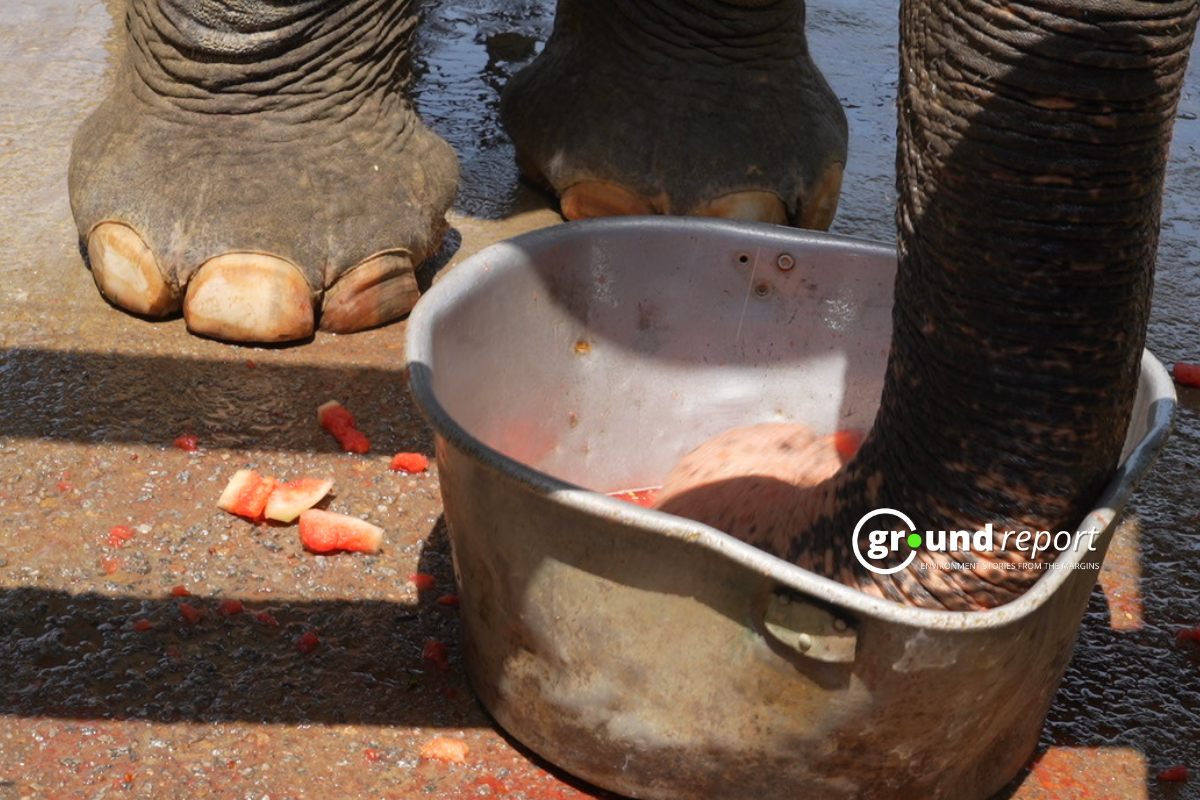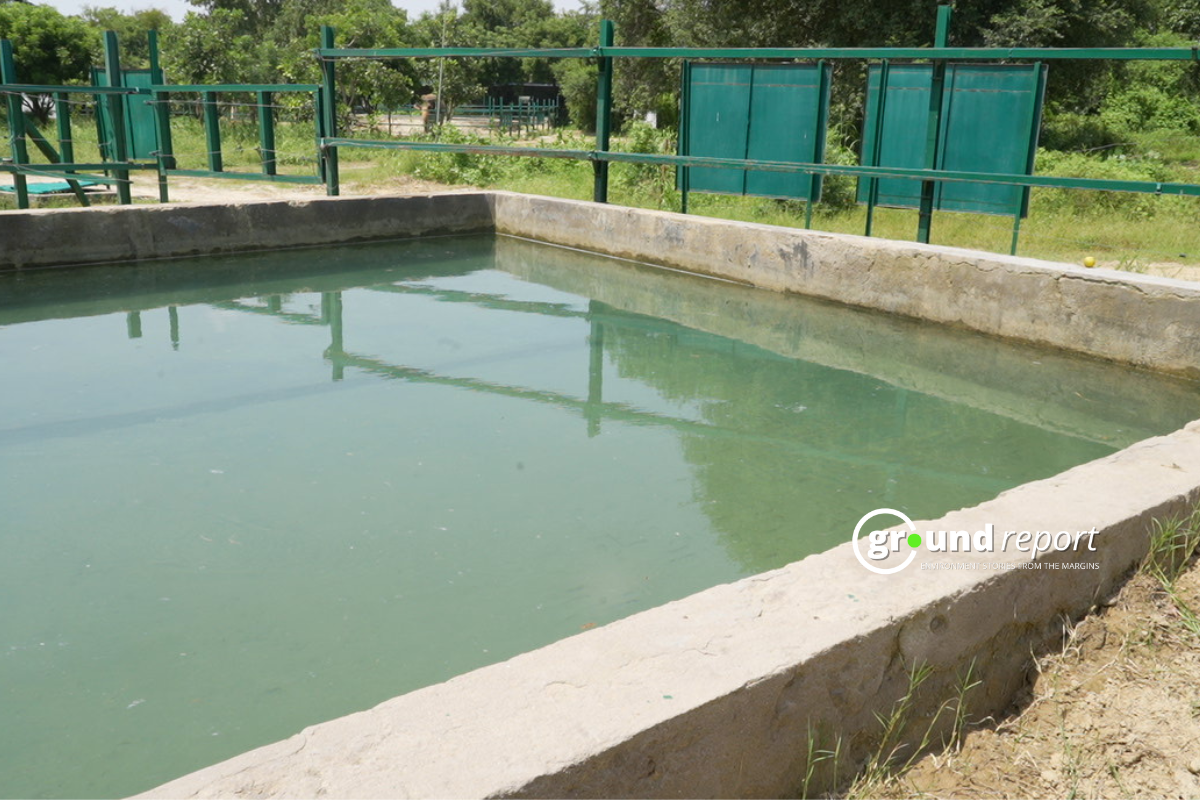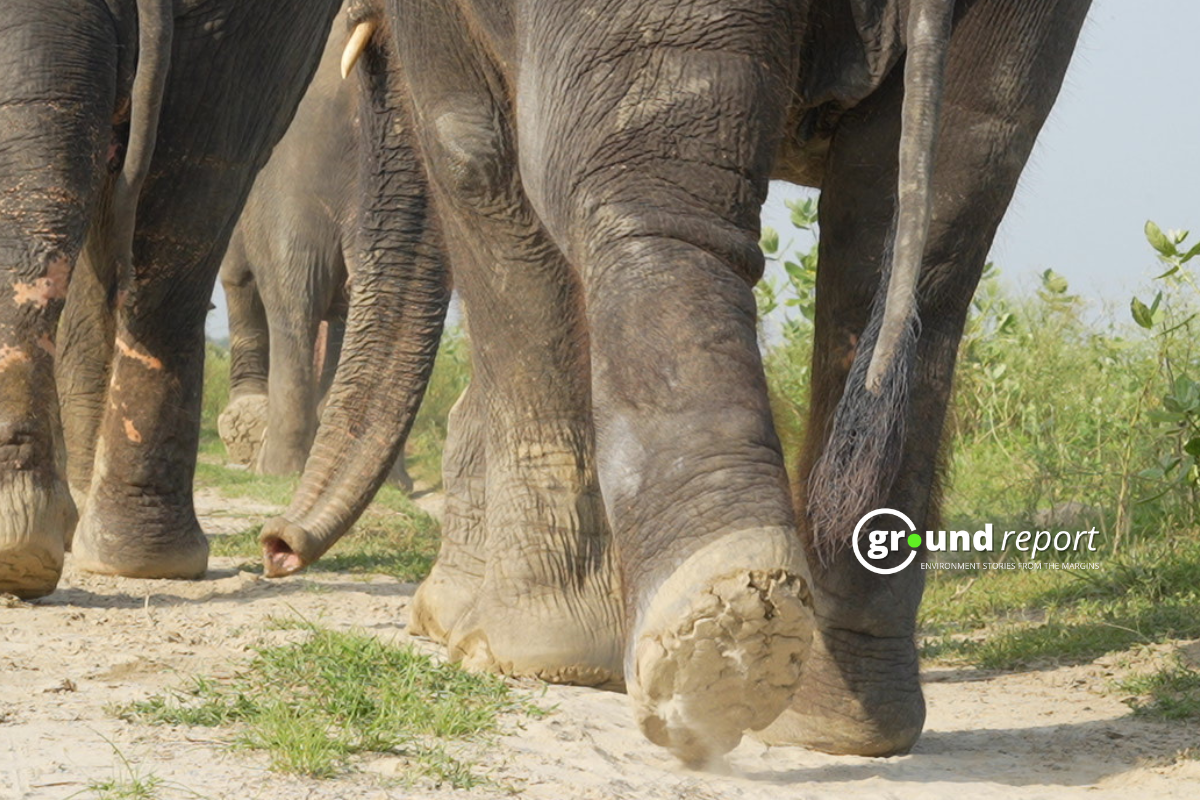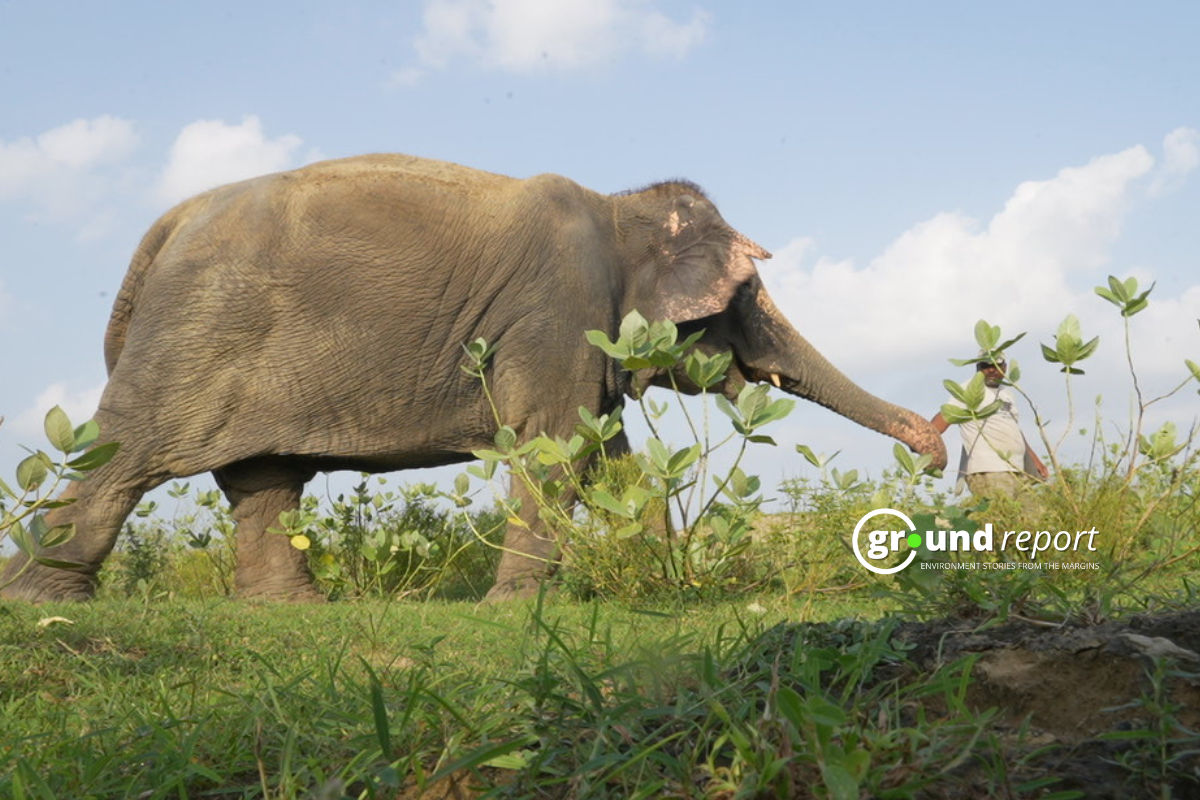High temperatures significantly impact elephants, as they are susceptible to heat stress due to their large size and thick skin. This can lead to overheating and negatively affect their health and behavior. Elephants require substantial amounts of water for hydration and cooling, and rising temperatures can exacerbate water scarcity in their habitats, forcing them to travel longer distances in search of water and risking dehydration.
Additionally, extreme heat may alter their feeding patterns, as they become less active during the hottest parts of the day, impacting their nutritional intake and energy levels. Prolonged exposure to high temperatures can also affect reproductive health, potentially leading to lower birth rates and increased stress on pregnant females. Behavioral changes, including increased aggression and altered social dynamics within herds, may also occur.
Furthermore, climate change and rising temperatures can lead to habitat loss and changes in vegetation, impacting food availability. Finally, heat stress can weaken elephants’ immune systems, making them more vulnerable to diseases and parasites. Overall, the effects of high temperatures underscore the urgent need for conservation strategies that address climate change and its consequences for these majestic animals.

The Effects of Climate Change on Elephant Populations
Elephants are particularly sensitive to temperature fluctuations. Research indicates that Asian elephants thrive best in temperatures below 24°C (75.2°F). Unfortunately, many of these elephants are exposed to temperatures exceeding 24°C for most of the year. In Myanmar, heat stroke has become a leading cause of death among Asian elephants.
In 2022, Kenya’s Wildlife and Tourism Board stated that climate change has emerged as a more significant threat to elephants than poaching. The impacts of climate change, including intensified droughts, wildfires, flooding, and extreme temperatures, are expected to worsen and show no signs of abating.
Every July, floods brought by the monsoon season in India cause an influx of young animals to become separated from their parents, including elephants.
Dr. S. Ilayaraja, Deputy Director – Veterinary Services with Wildlife SOS talked about the preparations they have to make for the rescued elephants in their center with the rise in temperature. He infomed,
“Caretakers here prepare for summers with extra sprinklers, more juicy fruits like watermelon, water baths and changing water of the swimming pool regularly.”
Elephants don’t sweat like humans do; instead, they have a few specialized areas for heat regulation. They primarily cool themselves through their large ears, which contain many blood vessels. By flapping their ears, they dissipate heat, helping to regulate their body temperature.

Additionally, elephants often bathe in water or mud, which helps cool their skin and provides protection from sunburn and parasites.
“This ability to manage their body temperature is crucial for their survival, especially in hot environments, as overheating can lead to serious health issues. Effective thermoregulation is essential for their overall well-being and ability to thrive in their habitats,” Dr. Ilayaraja added.
Many rescued elephants experience foot and toe issues due to injuries sustained during their time in captivity. These problems largely arise from being forced to walk on concrete paths, unlike their natural habitats in the wild.
Significance of living in the wild
Apart from the other reasons, elephants’ toes are crucial for their mobility, weight distribution, and overall health. Each foot has five toes that support their massive weight and allow them to navigate diverse terrains. Their toes play a vital role in absorbing shock, helping them walk quietly and maintain balance.

In captivity, the lack of natural environments can severely impact their toe health. Confinement often leads to inadequate exercise, abnormal foot posture, and conditions like foot rot or abscesses. Hard surfaces in zoos or sanctuaries can exacerbate these issues, resulting in pain and mobility problems. Proper foot care and a spacious, enriched environment are essential for maintaining the health of elephants’ toes, allowing them to thrive physically and emotionally.
Elephants help to boost environment
Elephants play a crucial role in their ecosystems, contributing significantly to environmental health. They aid in seed dispersal by consuming a variety of fruits and plants, with their dung promoting forest growth and biodiversity. By uprooting trees and creating clearings, elephants help maintain grasslands and open areas, benefiting various species. Their movements can also create water holes in dry regions, providing vital resources for other wildlife.
Additionally, their dung enriches the soil, supporting plant growth and overall ecosystem vitality. By shaping their habitats, elephants foster environments that support a wide range of other species, making their conservation essential for maintaining ecological balance and biodiversity.
Support us to keep independent environmental journalism alive in India.
Keep Reading
The costliest water from Narmada is putting a financial burden on Indore
Indore’s Ramsar site Sirpur has an STP constructed almost on the lake
Indore Reviving Historic Lakes to Combat Water Crisis, Hurdles Remain
Indore’s residential society saves Rs 5 lakh a month, through rainwater harvesting
Follow Ground Report on X, Instagram and Facebook for environmental and underreported stories from the margins. Give us feedback on our email id greport2018@gmail.com.
Don’t forget to Subscribe to our weekly newsletter, Join our community on WhatsApp, and Follow our YouTube Channel for video stories.






